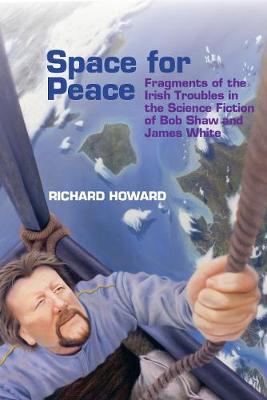Liverpool Science Fiction Texts & Studies
1 primary work
Book 68
Science fiction might not be the first thing that springs to mind when we think of Irish literature. But in the post-war period in Belfast, two authors, Bob Shaw and James White, began producing science fiction stories, eventually selling them to international markets and gaining the respect of luminaries such as Arthur C. Clarke, Brian Aldiss and Stanley Kubrick.
Although lauded in the international science fiction scene for their innovations in the genre, Shaw and White's work has been relatively ignored within Irish Studies. This book connects the emergence of science fiction in Belfast with the position of the city as the locus of technological development on the island of Ireland, and the development of a corresponding technological imaginary. Breaking new ground in the study of Irish modernity, Richard Howard draws parallels between the narratives of Shaw and White and the persistent influence of historical narratives embodied by the two-traditions paradigm in the region, as well as exploring the figure of the alien both in science fiction and in the history of Northern Ireland. He also considers the works of Shaw and White as utopian gestures against the backdrop of the Irish Troubles, finding both repressive and redemptive elements therein. The book makes an important contribution to the growing conversation about Irish science fiction and our understanding of modernity in Ireland.
Although lauded in the international science fiction scene for their innovations in the genre, Shaw and White's work has been relatively ignored within Irish Studies. This book connects the emergence of science fiction in Belfast with the position of the city as the locus of technological development on the island of Ireland, and the development of a corresponding technological imaginary. Breaking new ground in the study of Irish modernity, Richard Howard draws parallels between the narratives of Shaw and White and the persistent influence of historical narratives embodied by the two-traditions paradigm in the region, as well as exploring the figure of the alien both in science fiction and in the history of Northern Ireland. He also considers the works of Shaw and White as utopian gestures against the backdrop of the Irish Troubles, finding both repressive and redemptive elements therein. The book makes an important contribution to the growing conversation about Irish science fiction and our understanding of modernity in Ireland.
